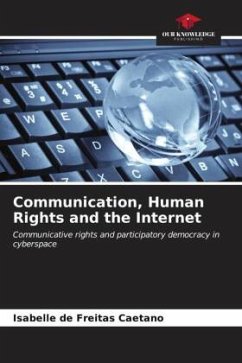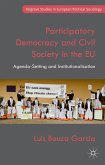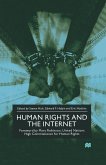New information and communication technologies have facilitated and accelerated the production, distribution and sharing of different information, ideas, opinions and cultural goods. In this context, so-called communicative rights include rights relating to all forms of expression or receiving information. They encompass a range of other rights, including the right to information, freedom of expression, opinion and the press, and free access to the internet. This paper addresses the intersecting spheres between democracy and social communication, particularly with regard to the exercise of communication rights in the digital environment. It starts with the notions of the public sphere and deliberative democracy, in order to understand how digital media can promote the expansion of citizen participation in the political sphere. The aim of this research is to analyse communicative rights under the aegis of human rights, especially in relation to the current communication context provided by the Internet in terms of strengthening democratic practices.
Bitte wählen Sie Ihr Anliegen aus.
Rechnungen
Retourenschein anfordern
Bestellstatus
Storno








